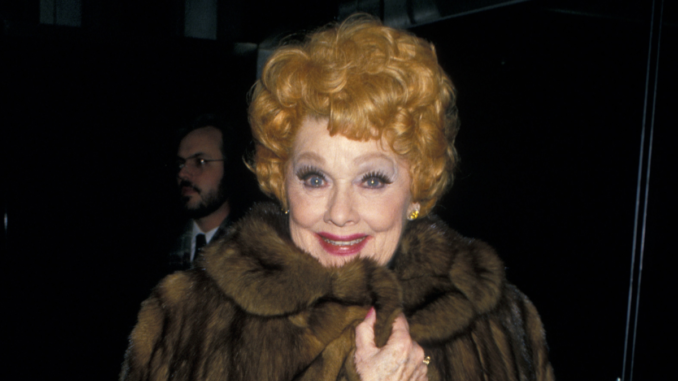
As much as we know her as the Queen of Comedy, Lucille Ball’s early life was a pretty tragic one, which might provide insight into why she gravitated towards comedy, as is true with many comedians. But despite a challenging childhood, her perseverance and joy led her to become one of Hollywood’s most beloved icons.
Born Lucille Desiree Ball on August 6, 1911 in Jamestown, New York to parents Henry Durrell and Desiree “DeDe” Evelyn Ball, life for the Lucy we love got off to a tough start.
“Her father was a telephone lineman and he dragged the family out from New York to Montana and then to New Jersey for his job,” explains Michael Karol, author of Lucy A to Z: The Lucille Ball Encyclopedia, The Lucy Book of Lists, The Lucille Ball Quiz Book, Lucy in Print and The Comic DNA of Lucille Ball. “He died when she was 3-years-old, an event that really scarred and colored most of her life, because her mother had to take care of the family and it became a difficult existence. But from everything I’ve come to understand, she was still a joyous child.”
The idea of being a performer took root early on. Laughs Karol, “She would perform in her house; they had a curtain separating the living room from the hall where you walked in, and she would put on shows.”
That was the happy part of childhood. The opposite was when their grandfather gave her brother, Fred, a .22 caliber rifle as a birthday gift, with which he accidentally shot another child, seriously injuring him. In response, they were forced out of Jamestown.
A few years later, Lucille came back and attended Jamestown High School, where she began hanging out with what was considered to be a rough crowd, particularly 21-year-old Johnny DeVita, who was dating her when she was just 14. Fearful, her mother was able to raise enough money to send Lucille to New York to attend the John Murray Anderson School for the Dramatic Arts. Unfortunately, that didn’t last long, the instructors not believing she had the necessary natural acting talent and she returned home.
“The thing about Lucy,” says Karol, “is that her personal quality enabled her to become a show business and, ultimately, world legend. That quality was perseverance, plus this never-say-die attitude and the desire to make something better of herself for her family so she could keep them together. That was a major impetus in her having a career, making money and keeping them together.”
This would lead her back to New York where she would get some modeling work and find herself hired as a “Chesterfield Cigarette Girl.”
Notes Karol, “Lucy was down to almost nothing and living on — this is what she said — leftover New York diner coffee and donuts; she would wait for someone to leave and if they hadn’t finished their donuts, she would run over and grab them and pretend that she had left the tip. Or take the tip. What happened is that she eventually ran into an agent on the street who spotted her and recognized her from the billboards and asked Lucy if she wanted to go to Hollywood.”
She very clearly said yes, and the progression of what happened next can be followed in the gallery below.
